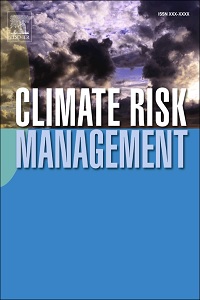Mapping South African farming sector vulnerability to climate change and variability: A subnational assessment
Micro-level analysis of farmers adaptation to climate change in Southern Africa
Micro-level analysis of farmers adaptation to climate change in Southern Africa
Msimu wa Kupanda : Targeting resources within diverse, heterogeneous and dynamic farming systems of East Africa. Thesis (Ph.D.)
Options for adapting to climate change in livestock-dominated farming systems in the greater horn of Africa
The greater horn of Africa is one of the least developed regions in Africa. Livestock are an important economic resource and an essential asset for poor farmers in this region. Climate variability, population growth, low economic development, limited market integration, and low fertilizer use, amongst others put serious pressure on livestock production. The sustainability of the livestock production in the rangelands and the integrated crop-livestock systems is further jeopardised by climate change.
Quantifying water productivity in rainfed cropping systems in Limpopo Province RSA
Simulation of farming systems in the Olifants river basin South Africa
Smallholder farmers’ attitudes and determinants of adaptation to climate risks in East Africa
Adapting to climate risks is central to the goal of increasing food security and enhancing resilience of farming systems in East Africa. We examined farmers’ attitudes and assessed determinants of adaptation using data from a random sample of 500 households in Borana, Ethiopia, Nyando, Kenya, Hoima Uganda, and Lushoto, Tanzania. Adaptation was measured using a livelihood-based index that assigned weights to different individual strategies based on their marginal contributions to a household’s livelihood.
The effect of Indonesia's economic crisis on small farmers and natural forest cover in the outer islands
Twenty million people live in or near Indonesia' s natural forests. The country's humid tropical forests are primarily in Sumatra, Kalimantan, Sulawesi, and Irian Jaya. A devastating regional economic crisis that began in mid-1997 affected Indonesia more strongly than any other country in Asia. A random sample survey of 1050 households was conducted in six outer island provinces to understand the effects of the crisis on the well-being of forest villagers and on their agricultural and forest clearing practices.





